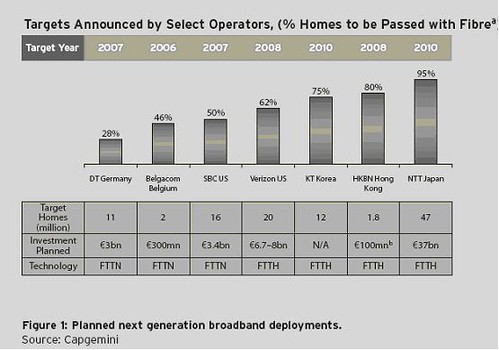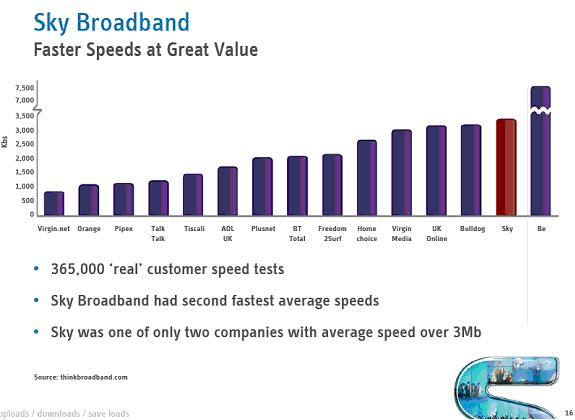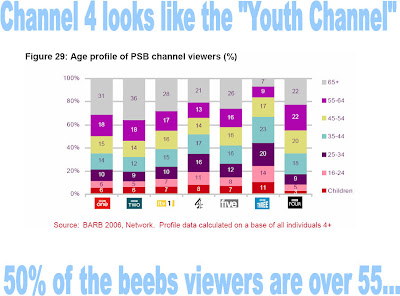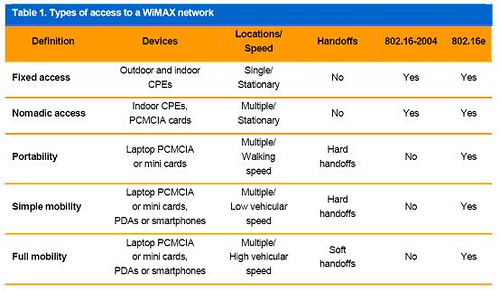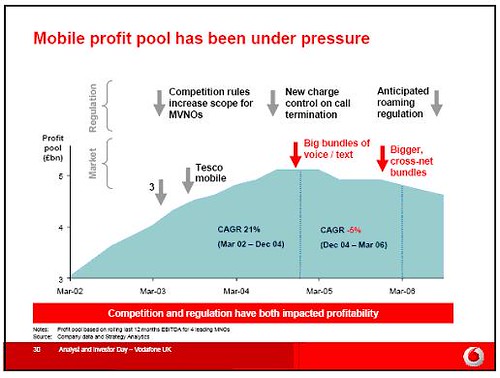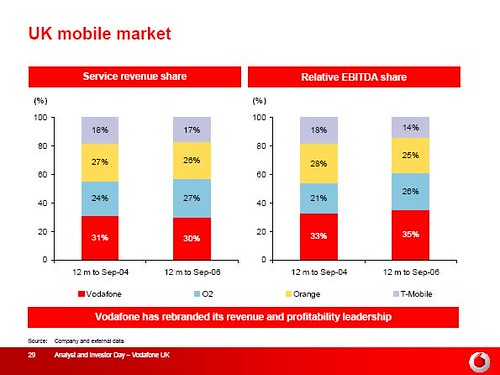IntroductionThe timing of the Carphone Analyst Day has always created alarm bells to me – normally it is after the trading statement, but before the details of the results has been disclosed and yet deal with the Carphone vision of the future and usually involves the announcement of investment in a new direction.
Yesterday, Carphone also announced a new structure for financial reporting creating a stand-alone division for the UK Line Division and lumping the rest of the operations together. I immediately had the same feeling as occurred when Gordon Brown announced tax cuts in the budget – where is the trick?
Despite my natural born cynicism I haven’t discovered one yet relating to the fixed line separation and can think of only more clarity going forward to investors on a division which has very different characteristics to the trading parts of the empire.
I’ve decided to split my interpretation of the analyst day into two episodes: one covering the distribution and other the fixed line division.
The Capex CarouselAll communications networks share one great feature – they can always be improved with the injection of cash. I’m not sure this is a great feature for investors, but I’m sure it is good for someone.
Dark FibreNeil McArthur announced yesterday that Carphone was making a switch from leased bandwidth to dark fibre. This was delivered as a throw away, but I’m sure it was actually quite a big decision for the senior team to make – dark fibre is only of any use if it is lit and to light it you need electronic kit, sites to house and power the kit and people to maintain the kit.
It is also relatively simple to lease dark fibre on the core of the Carphone network which after all is a mere three sites in Irlam, Brentford and Birmingham. There are also a lot companies with nationwide rings with spare dark fibre who would compete hard in an auction scenario for the business. It is also relatively simple to light the fibre, after all Carphone will have spare space, power and on-site engineers.
The difficulty becomes when the Carphone LLU exchanges are connecting to this core ring and for this it will have to have a presence in all the major cities of the UK. This may not involve a physical building, but rental of space within another telco’s building where they can connect dark fibre to the core ring. Again this is not much of a problem, but a bigger expense - a few network operators have points of presence in the major UK cities and there is plenty of fibre in the City Centres.
The real difficulty is that home telephony services are delivered by exchanges in the suburbs where a lot less fibre has been laid, apart from BT and the Virgin Media franchise areas. From the
invaluable Samknows database, if we take the LS (Leeds) postcode as an example where BT have 23 exchanges; CPW plan to unbundle 14 of these exchanges in mainly the suburbs. If you click on the Samknows link and
play with the Google Map by choosing CPW ADSL availability, you get a visualisation of the problem facing Carphone providing backhaul in just one UK city.
The point that I am trying to make is that a bland statement such as “control of backhaul costs is essential for profitable operation and expansion” is actually in practice quite a difficult task and more importantly can involve an almost infinite amount of capex over an infinite period. There will always be a way of further reducing operating costs by investing capital in a network.
Increase in ReachCarphone announced an extension of their LLU network to 1,650 exchanges which will take them to 86% of UK population coverage and create daylight between them and Sky in the race to build the largest LLU footprint.
Again this is more capital, say £25m with 500 exchanges @ £50k per exchange and adds more backhaul further from city centre suburbs in less populated exchanges, say £6pa with 500 exchanges @ £12k per annum. The corollary is that although less populated these exchanges tend to serve higher incomes and have less competition not only from other unbundlers but also from cable.
In fact, I wouldn’t be in the slightest surprised if this time next year Carphone announce the roll-out of LLU coverage to another 500 exchanges.
Class 5 Voice ServicesA lot of people tend to portray getting a VOIP service up and running is a pretty simple affair – Carphone revealed a little challenge yesterday which takes a huge amount of engineering effort to get correct.
If you are selling VOIP services into the home as the primary voice path, the customer expectations are greatly enhanced from someone playing with telephony as a PC service. Carphone revealed that it was extremely hard to get equivalent Class 5 services compared to the BT PSTN. The example used was voicemail and call waiting, but I can think of lots of others and Carphone has
a list of the features on their site. Carphone issued a challenge of whether people could notice a difference with the BT services and I confess to tinkering last night (whilst watching the wonderful Sri Lankans hammer the Kiwis) with the non-monthly charged services and can confirm they are all working and working well.
What is more interesting is that Carphone actually stated that BT have a huge problem with this down in the 21CN trials in Cardiff and explicitly mentioned Ericsson kit (Carphone use Sonus kit) as a source of the problems. They also hinted that this was the reason that Sky was behind schedule in offering a fully unbundled solution.
Carphone are actually past the trial point and have a reasonable amount of voice traffic on the network with 500m minutes a month of Class 4 NGN Transit and 200m+ minutes a month of Class 5 NGN Access Traffic are loaded.
I actually believe that this will create quite a big barrier to entry for the smaller and non-incumbent owned ISPs. So, for instance, it shouldn’t be too much of a problem for Orange to solve, because they have the might of France Telecom behind them, but for Tiscali it could be a much bigger challenge.
On a related note, Carphone explicitly stated that they didn’t see a future for transit operators in a VOIP world and this is huge problem for the altnets, especially one’s that are still tied to third party voice and service delivery.
Network ConsolidationMost analysts will be amazed at the confession that this early in the life cycle of Carphone – they already have a large network consolidation project underway. Perhaps not so much the AOL consolidation side of the equation which should save on backhaul and core costs by collapsing those two networks into the Carphone NGN network. The SDH network will be a surprise to many. When Carphone bought Opal Telecom is Nov 2002, its biggest asset was claimed to be the “deepest interconnected network with BT switched network”. As more and more traffic moves to the NGN network in both the residential and business market, this asset will reach a tipping point and eventually become a liability.
This is a typical problem faced by all network operators and a key management challenge which is rarely discussed – how to transition customers off old services onto new services and turn off the old networks and shut down the support costs. The true problem faced by nearly every operator is that the accounting systems don’t reveal the full support costs. So, for instance, old customers appear to be highly profitable because there are no SAC costs left to depreciate and they make relatively few calls to the call centre. However, the network costs and IT costs are not fairly allocated to the customers and more importantly the whole operation becomes more and more complicated to support.
It will be interesting to see how successful Carphone are in moving to a new unified network in the coming years. It also highlights the myths that arise around some of the altnets which shall pass as anonymous here, when they drone on about how much advantage they have because their network is NGN enabled. Well, if 95% of the customers and 99% of the traffic are on an old TDM network – it is hardly an advantage more a contingent liability.
IT CapexMy last comment on Capex is the IT element - the CFO made a throw away comment that it is nigh on impossible to reduce the IT capex even after the main implementation of a new billing platform is complete - welcome to the network services world.
I suggest it is only going to get more expensive in the future as well.
Customer BaseA new target of 3.5m broadband customer by 2010 was announced with equates to around 100k/quarter of net adds over three years which can hardly be described as challenging.
The key cost here is the amount of churn and Carphone seem to be extremely reluctant to issue a number, although they are fully aware it is probably at this stage the second most important variable in the determinant of profitability.
Carphone keep mentioning the ridiculous 1% per month churn figure which equates to on a base of 3.5m of 140k leaving every quarter, whereas on what I think is a far more realistic figure of 30% per annum means 262k leaving every quarter. If Carphone manages to keep SAC costs to around £50/sub, this equates to £52m of SAC costs per annum just to stand still which is £1.20/customer/month.
The non-broadband base (cps + narrowband) is expected to decline to around 1m by 2010 from around 2.5m today. Although today customers are probably highly profitable, there will become a point where the modem banks and TDM voice kit need to switched off. The important challenge for the Carphone is to transition these onto the broadband platform and lose as few as possible to churn. Obviously with around 4.6m customers today (2.3m BB + 1.8m CPS voice and .5m aol narrowband) and 4.5m customers in 2010, Carphone aren’t planning a hugely successful transition.
It is noticeable that Carphone admitted deficiencies in managing the one.tel acquisition which lead to a large churn in the base and said they are on top of the problem with AOL. This is quite news, but I question the value of the AOL brand in the UK in a 2-3 year horizon and the willingness of the customer base to pay a premium for the services. In fact, I feel that apathy is Carphones best friend in managing churn on the non-broadband base.
P2P CommentsI must comment on the P2P part of the Charles Dunstone speech which was completely bizarre. I can understand and empathise with anyone would doesn’t want to invest in the content business, but to go on and on about illegal p2p downloads being the reason is just asking for trouble. Carphone may have a few issues with OpenReach that they are working through, but if the music or movie industry target the network because of his cavalier attitude towards P2P Dunstone may need more lawyers than engineers.
Even stranger is that it seems from reading the bulletin boards that Carphone currently throttle all P2P traffic and therefore isn’t exactly adopting a P2P friendly positioning. Also, the plan to charge per GB which was mentioned will drive the bandwidth hogs off the Carphone network, which again is a legitimate strategy but not one for a non-content ISP. I would personally recommend a strategy for Carphone to work to make its network legal P2P friendly and efficient and therefore give it an edge over the rest.
ConclusionThe Capex Monster and its insatiable appetite for cash is now firmly entrenched in Carphone UK Fixed Line business. This monster doesn’t mind digesting new coverage, new technologies, new services or even new companies; the monster doesn’t object to either large projects or small projects and many a successful entrepreneur has historically tried to tame the monster with very limited degrees of success.
The challenge for the Carphone investors, of which Charles Dunstone is the largest, is to see whether the UK Fixed Line division is actually providing a decent return on capital. The separation of the operation into its own division reporting its own EBIT performance is a welcome step but only one side of equation. Also Carphone needs to be clear on including the amortisation of acquisitions and reorganisation costs in the EBIT calculation. Investors also need to remember the absolute of capital invested, including corporate acquisitions, customer acquisition and capital for network services and most importantly the cost of this capital deployed.
The other side effect of the separation of the divisions is that it is now far easier to create a completely seperate financial structure for the Fixed line business: whether this be asset based financing, a spin-off, taking the division private or even a trade sale.
Most importantly, the message I am hearing loud and clear is that the UK Fixed Line although a bit of a troublesome teenager is now big enough to stand on its own two feet.
